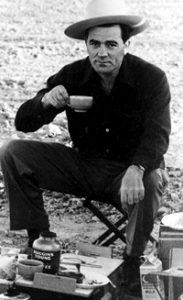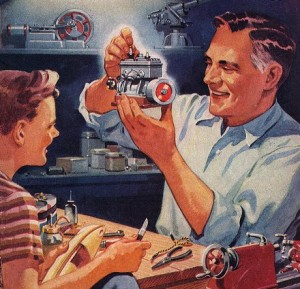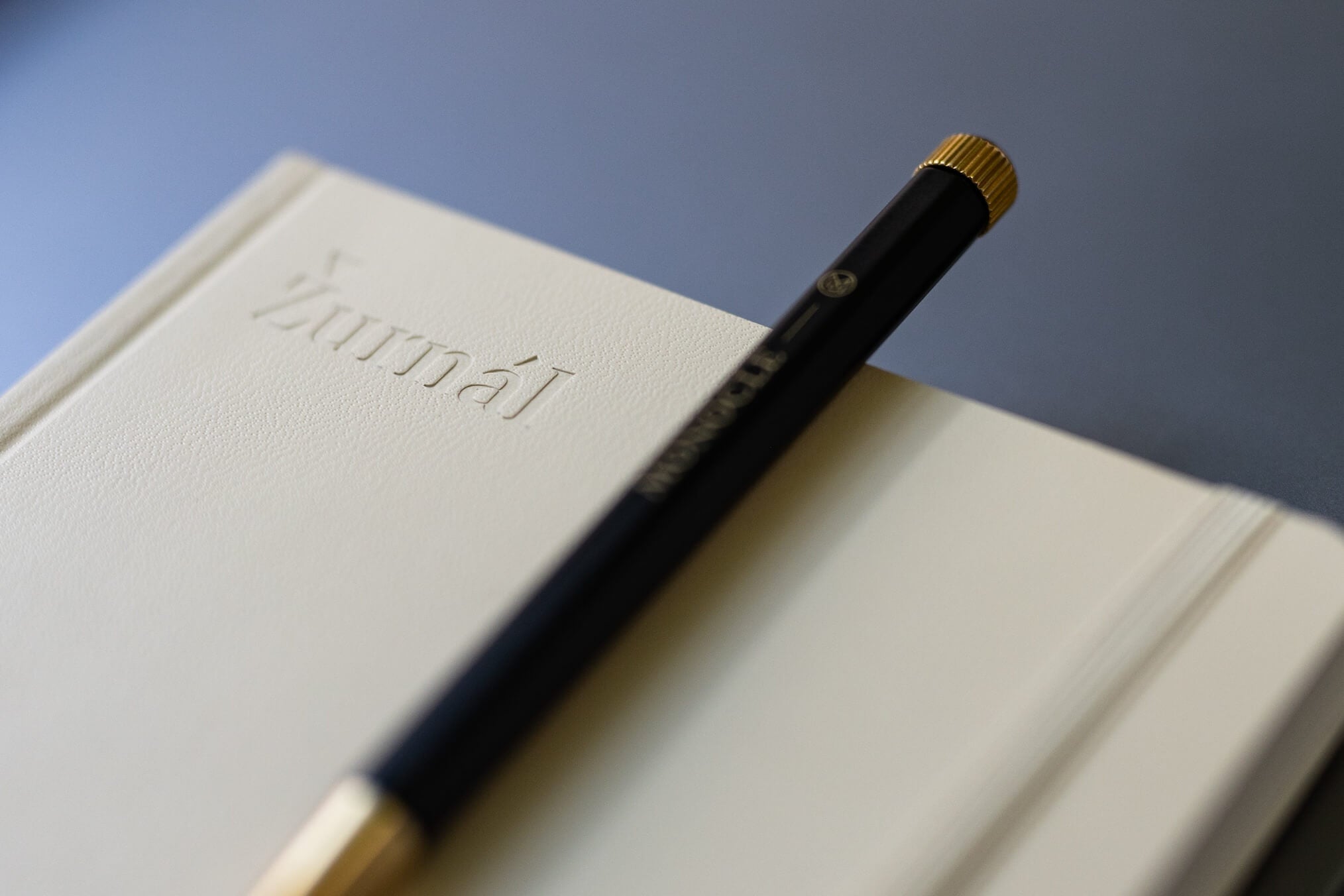
How and why to become a lifelong learner?
Our main "work" during the first twenty-two years or so is education. We spend a huge amount of time in classrooms acquiring new knowledge. And then, when we graduate, we feel that the learning phase of our lives is over and that it's finally time to go out into the world. Have you ever wondered what a weird idea that is? That learning new things should be devoted only one quarter of life and the remaining three quarters we should just rest peacefully?
It's such a delusion. But one of those that many people, at least subconsciously, accepted as their own. But the school does not have to be the exclusive mediator of education. Just because you've finished your formal studies doesn't mean your education is over!
Many and perhaps even most of the great men in history were self-taught. Those who have dedicated their lives to self-education, either as a supplement or as a substitute for formal education. Such a great example is the writer Louis L'Amour. He was one of America's most prolific and virile writers. During his career, he published 120 short stories and several collections of short stories and poems. Louis L'Amour's story is made even more interesting by the fact that he was almost entirely self-taught.
Due to family difficulties, L'Amour left school at the age of fifteen and spent the next eight years traveling the American West and working various jobs on cattle ranches, farms, sawmills and mines. To improve himself a bit, he participated in various boxing matches around the country and gained a reputation as a formidable opponent. In his early twenties, he became a merchant marine and circumnavigated the world on a paraship.
 Louis L'Amour
Louis L'Amour
During all this time, L'Amour literally devoured books. As soon as he entered a new city for the first time, he sought out the local library. If there happened to be none nearby, he preferred to skip the meal so that he would have enough money to order books from the catalog. He was also working on his career as a promising writer, scribbling notes into cheap notebooks that he carried with him at all times .
All the experiences he collected during his travels, all the books he read and the notes he wrote down became the basis for his later successful career. But even after L'Amour became a successful writer, he continued to follow his passion for learning, which later paid off handsomely. He is a perfect example of how a person can create an exciting destiny if he dedicates his life to lifelong learning. (To learn more about L'Amour and his self-education, buy his autobiography Education of a Wandering Man . A very inspiring read).
If you want to become a more educated person, you need to adopt a life attitude that includes lifelong learning. Below we will explain why you should become such a student and how to do it.
Why become a lifelong learner?
" Our whole life is education - we are always learning beings; at any moment, in any place, under any circumstances, something is added to the stock of our knowledge. From the moment the mind begins to work, it is constantly in motion. Whether he is in a palace or a cottage, in a park or in a field, regardless of what he is doing at the moment, every person is an eternal student. These are laws that are deeply encoded in all of humanity. - Edwin Paxton Hood, Self-Education: Twelve Chapters for Young Thinkers, 1852
You will earn more . You graduated from college fifty or sixty years ago and got the education you need for the rest of your career. You won't find such a luxury on the job market today. The skills that were most important five years ago are probably outdated today, and the work we'll be doing in the coming decades probably doesn't exist yet. If you want to stay competitive and make more money, you need to become self-taught.
Becoming a lifelong learner can not only help you earn more money in a traditional job, but it can also open the door to starting your own business. Throughout history, there are countless examples of famous people who learned how to start a successful business without any formal education. Take, for example, Benjamin Franklin, Thomas Edison or Henry Ford. She also likes entrepreneurs who, while not famous, became successful simply by teaching themselves what they needed to know and constantly trying their luck.
You will become more interesting and charismatic. People who had the opportunity to meet Theodore Roosevelt were always amazed at his ability to hold a conversation with anyone and absolutely anything. Scientists were blown away by his vast knowledge of complex theories, socialists were enthralled by his spirited notes on Oscar Wilde's final work, and western cowboys respected him for his understanding of desert life. How did Theodore Roosevelt become such a charismatic conversation partner? By developing the ability to read quickly and then gobble up books like a hungry wolf feasting on freshly caught prey. When he lived in the White House, he read one book every day before breakfast. If he wasn't attending to any official business in the evening, he read another two or three books plus any magazine or newspaper he could get his hands on. Out of his own interest, Roosevelt read tens of thousands of books over the course of his life, including hundreds in foreign languages. As a result, he could make contact with anyone from any social status and talk to them about a topic that really interested the other.
You will become a better leader . Being able to connect with others will not only make you a more interesting person. It will help you become kinder. The bigger your knowledge base, the more people you can meet and the bigger your pool of solutions to solve problems and overcome challenges.
You will become independent and skilled . One of the things I admired about my grandfather growing up was his knowledge of all sorts of cool things. He was always doing something and seemed to know everything about everything. How to hunt, how to shoe horses, how to garden (he grew grapes), how to make amazing pancakes. And even after he retired, he was still learning new things and still acquiring new skills. For example, he learned how to restore antique carriages and repair old gramophones. He even became so skilled at it that he made a small business out of repairing antique record players.
When something broke or something needed to be done for Grandpa, he managed it all by himself thanks to all of his diverse abilities. Back then, you never had to call or pay an expert to do it for you. And if he ever didn't know how to do something, he went to the library, borrowed a few books on the subject, and then figured it out himself.
Lifelong learning keeps your brain healthy . Henry Ford said: “Anyone who stops learning is old; and it does not matter whether he is twenty or eighty. Anyone who never stops learning stays young. The most wonderful thing in life is to keep your mind young.” Almost a hundred years later, science confirmed Ford's statement. Margie E. Lachman, a psychologist at Brandeis University who specializes in the aging process, says, "Education seems to be the elixir that keeps our bodies and minds healthy in adulthood and may even ensure we live longer." Her research shows that the more extensive an older person's education (whether formal or informal), the better the results they received compared to other older people who were less educated.
Thus, learning new things can ward off aging diseases such as dementia or Alzheimer's. One study showed that older people who remain cognitively active and curious about life are 2.6 times less likely to develop dementia or Alzheimer's than those who put their minds to rest.
You will be more satisfied with your life. In his book Drive , Dan Pink argues that we need to feel driven by the following three things in our lives: autonomy, mastery, and purpose. Deciding to become a lifelong learner fulfills all three of these psychological needs.
When you are self-taught, you - not your parents or teachers or your boss - decide what you learn. Instead of being a passive consumer of knowledge, you actively choose what you learn. In other words, you are autonomous . As you acquire new skills, you'll enjoy the feeling that comes with mastery . And if you set new goals in your education, you will find a renewed meaning in life.
The satisfaction that comes with lifelong learning, but it doesn't stop there. The more you learn about the world, the deeper you can understand it and the higher level of understanding you discover. Whether you travel, hold a debate, visit a museum, watch a movie, read a book, your library of knowledge allows you to find connections between information that you would otherwise never have noticed because the author/speaker assumed knowledge of the circumstances or awareness of culture as a matter of course.
You become more human . As Robert Heinlein famously commented: "A man should know how to change diapers, plan an invasion, kill pigs, command a ship, design a house, write a sonnet, balance accounts, build a wall, straighten a bone, comfort the dying, carry out orders, distribute orders, cooperate, counsel oneself, solve equations, evaluate a new problem, spread manure, program a computer, cook delicious food, fight effectively, die bravely. Specialization is good just for insects."
The most frequently identified obstacles

Time. I understand this. You are busy. I know how hard it is to imagine that you should squeeze some time for self-study into your already busy day with work and family. But that's the thing - as a lifelong learner, you have no deadline by which you have to learn something. It can take as long as you want and you can do it whenever you want. As a result, you don't have to spend hours a day reading and practicing, just thirty minutes here and there over months and years and it will show. What's more, I know from experience that when I consciously made studying a priority, I always found time for it (which means that if I was doing other things before, I was just wasting time).
There are many free moments that can be used as learning opportunities. While driving, you can listen to an audiobook instead of the best hits of the 80s or 90s. You can take a good book to the doctor's waiting room instead of flipping through two-year-old magazines.
Money . This barrier only exists if you need to attend formal classes to learn something. You don't need that. Thanks to the wonders of the Internet, today you can learn about absolutely anything (and even enroll in college-level courses), learn at your own pace, and do so for free.
Information . As with money, this problem has disappeared for good thanks to the Internet. There may be some skills that require personal coaching, but finding people to teach us is also much easier today thanks to the web.
The place . This only matters if you think you need to sit in a class to learn. You don't have to. You can study at home, in the car or in the garage. Granted, there are times when you'll need to be in a specific place to acquire a new skill (for example, you can't learn how to ski while you're somewhere that's definitely not snowing), but those times are the exception rather than the rule. rule.
How to become a lifelong learner
Cultivate a growth mindset . One thing that can hold you back from learning new things is the belief that you can't learn anything new. But neuroscience and psychology have proven that this is not true. Our brains remain malleable and learnable even in old age, that is, neurons are able to create new connections all the time and thus enable us to learn new things even in our eighties.
To become an effective lifelong learner, you need to adopt a mindset that aligns with how your brain actually works. Stanford psychologist Carol Dweck discovered that people always have one of two types of thinking: a fixed mindset or a growth mindset. Individuals with a fixed mindset believe that their intelligence and talent are innate and immutable, that they cannot be improved in any way. People with a growth mindset, on the other hand, believe that they will improve in many ways through work and practice.
It is the latter approach that you should want to adopt. But how to do it? Here are a few things Dweck suggests:
- Read a study that proves that growth and improvement are possible
- Develop resilience
- Try new things
- Read about people who have adopted such an approach to life and take an example from them
Change the way you think about learning . Education does not have to be found in the classic school way. In fact, the most useful things you know are probably picked up informally from your family, friends, and good old fashioned trial and error. In order to become a lifelong learner, bury the idea that you have to enroll in some courses to know something. Opportunities to learn are all around you. Realize that education is not limited to what can be found in books - it is also gaining direct experience, which is a huge part of it.
Set your goals . What do you want to learn? How long do you want to learn it? Each year, set goals for the skills and knowledge you want to acquire. I usually set three big goals for myself every year. For example, this year my goals are: 1) learn how to make videos for my blog, 2) learn how to handle a handgun in defensive situations, 3) learn how to hunt and skin a deer.
In addition to these three big goals, I have made it my mission to learn something new every day - and it doesn't matter if I learn it by reading or talking to other people. In order to have something to talk about at dinner (besides the blog), Kate and I play a game called "What did you learn today?" (we actually say: "Do you have a story for me?", it's our shorthand for "Did you read or hear something interesting today?"). Every day we both try to learn something new so we can share it together over dinner.
Setting a reading goal for yourself can also be motivating. For example, our new employee Jeremy set himself the task of reading all one hundred books from our " 100 Must Read Books for Men" article in one hundred months, which works out to just over eight years. No need to rush! Jeremy wanted to make sure that his goal was manageable and that he had time to read other books at the same time. One book a month is a great solution.
Find your resources . Once you've established your learning goals, it's time to gather resources. You do a quick search on Google to see what information is available online. Then head to the library. It seems to me personally that, compared to articles on the Internet, one can find better and deeper insights into the matter in books. If it's a skill that requires professional instruction, start making a list of places or people who might offer that instruction.
Ask questions. Effective learning requires active participation. You can't just passively consume information. As you read or talk to experts, ask questions. Don't know what to do? Check out this amazing article we published last year . Don't worry about looking or sounding like a trumpet. Rise above your pride.
Find a group. While many learning goals can be accomplished alone, it helps to find a group of people who want to learn with you. Your "classmates" can provide you with insights and resources that you wouldn't have come across otherwise. What's more, in a group setting you often get constructive feedback that you wouldn't get on your own. And as a bonus, learning with others is just more fun.
To find people to join the group, start with those you know. Maybe you have some friends who want to learn the same thing as you. Hold a discussion group or some practice session once a week. If you cannot find any friends with the same goals, look at networks such as MeetUp ( Srazy.info works in the Czech Republic). There should be a group focused on the same goal in your area. Online communities can also provide a good learning environment, although they may not provide as dynamic collaboration as in-person groups.
Practice, practice, practice. Don't limit your journey to knowledge to just reading and listening. Try to find a way to apply the acquired information. If you're learning about art, visit a museum and try to determine which paintings belong to the Romantic period . If you're learning about wilderness survival, go out into the wilderness every month and put your skills to use in the real world. If you're learning to program, program.
Teach what you learn . One of my favorite books is The Seven Habits of Highly Effective People by Stephan Covey. One of the things Covey says in the book is that to really learn something, you have to teach it. Covey claims that if we teach, we become really motivated to study the material carefully, as we want to guarantee the quality of the information to the other person. Teaching others also forces us to look at an idea from a novice's perspective, which can bring us clarity and insight that we previously lacked. What's more, just speaking out loud to others will help us solidify our thoughts through the production effect.

As you learn new things, teach others. Blogging is a great way to pass on what you are learning. I have gained a lot of skill in the last five years just by deciding to write a post about the topic. When I wrote about " how to change the oil in a car ," I had Kat's uncle Buzz teach me how to do it; when I wrote " how to throw a knife ", I went and spent a day at a tourist ranch with its owner, Tom Warren; and when Kate and I wrote articles about the history of honor , we read dozens of books and scholarly articles on the subject.
Try yourself. If you're learning, it's important to get feedback, and testing is the best way to do that. As a self-taught person, you probably won't face formal tests, so you'll need to create your own. How you test yourself will then depend on the skills or knowledge you are trying to acquire. If you are learning to shoot, your test could be target shooting; if you are learning Vietnamese, you can try visiting the nearest Vietnamese party and speaking only Vietnamese to the cashier.
The article was translated from the Czech language from http://www.mimoskolu.cz/jak-a-proc-se-stat-celozivotnim-studentem/




